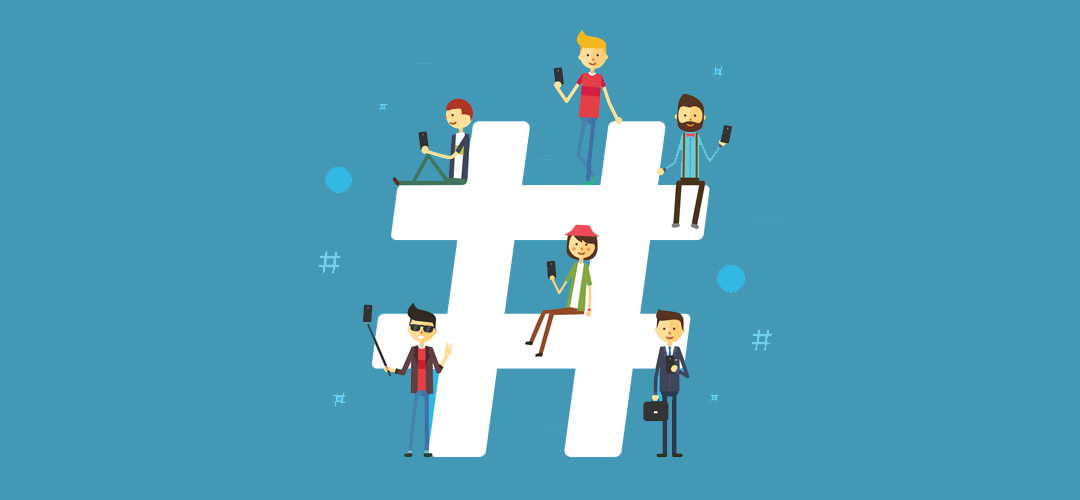In a high-tech world where communication with almost every living soul is available at the push of a button, the hashtag is a decidedly low-tech solution. When you think of the millions of lines of computer code powering so many aspects of our lives today, they are as close as most of us get to programming.
Since 2013 intellectuals have continually felt obliged to point out that hashtags still matter. Writing for Birmingham Blogging Academy, Wade Kwon wrote “Why are we still talking about hashtags in 2013?” Five years later, the hashtag is still the online marketer’s quickest and easiest way to reach an audience, develop a brand and connect with an audience.
What started out as a simple way to search posts on Twitter has quickly expanded across almost all social media platforms, becoming the de facto language of the Internet. So if we had to ask whether hashtags were relevant in 2013, does the question still persist five years later?
In a word, yes. In several words, oh my goodness gracious why yes indeed they certainly do.
Yeah, sorry to throw the misleading question in the headline there. But really, the Internet has two de facto languages: hashtags and headlines.
But why are hashtags so important? Beyond letting people search for various posts (be it on Facebook, Instagram or Twitter, that share a common message or theme), they can also be a tremendous tool in the arsenal of an online marketer.
Make it Your Own
One of the greatest use of hashtags has to be the corporate branded hashtag. Whether it’s bra merchant Harper Wilde’s somewhat cheeky #LiftUpTheLadies or Nike’s classic #JustDoIt, the branded hashtag is a great way to declare your corporate identity and give followers a way to join the conversation.
This can be more or less a slogan, as in the case with Nike, but it does wonders for raising brand engagement by giving your audience something to add to their own posts when they’re advocating for you.
They can also be a great tool for attracting talent. Cisco has seen enormous success using hashtags to help build its culture among employees, chiefly through it’s #WeAreCisco tag. Starting with its Snapchat channel, Cisco eventually moved the campaign over to Instagram stories, doing wonders for employee retention and job satisfaction.
Start A Conversation
One of the best things you can do as an online marketer is to create something that goes viral and promotes your brand, while catching up the entire social media world in a conversation you started.
So you should try that. It’s super easy.
We’re kidding. There’s a subtle art to creating a hashtag campaign that will get people talking about your brand and while it’s riddled with pitfalls, the payoff can be tremendous.
One of the best uses of hashtags was for the brand that made this all possible: Twitter. Their #BrandBowl campaign pitted the true stars of the Super Bowl against one another: the commercials. The platform counted tweets, retweets and tweets per minute referencing each of the game’s commercials, showing the true power of Twitter in promoting brands. Pepsi ended up taking the win for its ad that doubled as part of its own hashtag campaign, #ForTheFans.
These campaigns can also help a brand build identity through a connection to a social cause, whether it’s the promotion of tolerance raised by Airbnb’s #WeAccept campaign or the peaceful resolution of differences (over a beer, of course) promoted by Heineken’s #OpenYourWorld campaign.
Of course, there are pitfalls to building a brand campaign around a hashtag. Observe, for example, the debacle that arose surrounding McDonalds’ #McDStories campaign. Rather than share their stirring tales of going to a fast food restaurant, nearly every Tweet that used the hashtag did so sarcastically.
Most small businesses won’t have these kinds of issues, though. For your part, hashtags aren’t just a vital part of the online conversation, they’re a great way to build your brand, tell your story and ultimately reach your customers.
Want to learn more about how Times-Union Media can help you with social media? Give us a call at 904.257.8154, or fill out our contact form.
Also, don’t forget to download our Guide to Digital Marketing for the latest insights.

